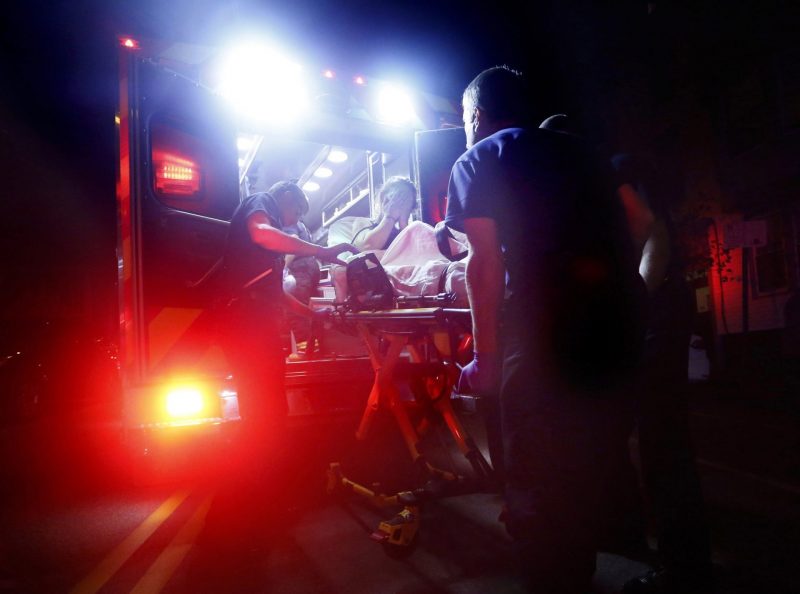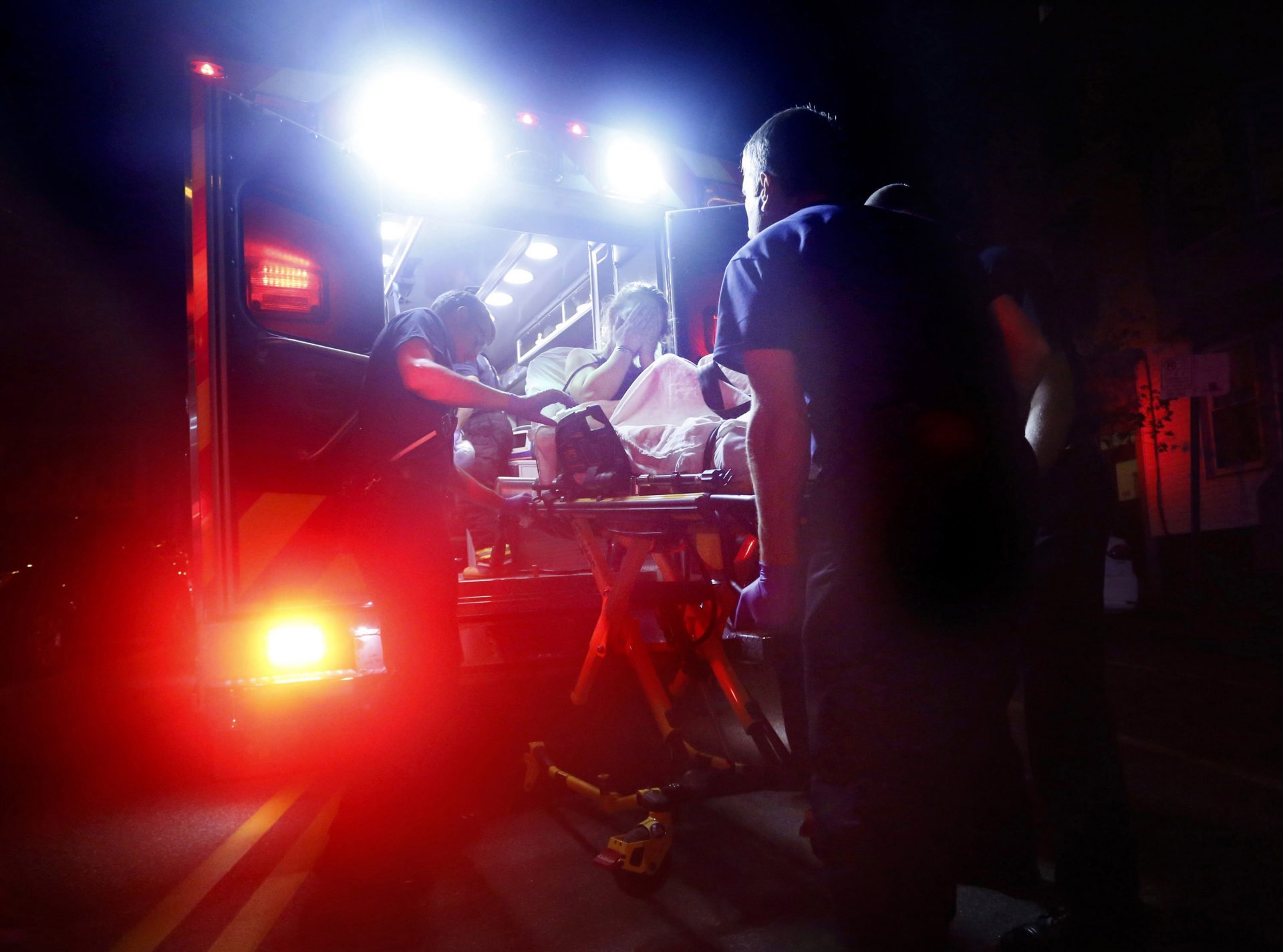
Derek Davis / Portland Press Herald/Getty Images
“Unfortunately, I see some of the progress we’ve made slipping away.”
David Wenner/PennLive
(Carlisle) — Drug overdoses have spiked in central Pennsylvania, with the rise coinciding with the stay-at-home order brought on by the new coronavirus.
In Cumberland County, 24 people have died of overdoses so far this year, with most deaths occurring after March 1, Coroner Charley Hall said Wednesday. He said almost all involved fentanyl, an opioid.
York County has seen 65 overdoses —22 more than during the same period last year, Coroner Pam Gay said. Overdoses had declined for two consecutive years in both York and Cumberland. Now both counties are on pace to top their 2019 death tolls by large margins. Perry County, which normally has 12 to 15 overdoses in a year, has had three likely overdoses within the past month, although official determinations are still pending, Coroner Bob Ressler said.
“Unfortunately, I see some of the progress we’ve made slipping away,” said Jack Carroll, who directs county-run drug and alcohol treatment programs for Cumberland and Perry. “For those in recovery, this is a high-risk time.”
Carroll said Cumberland is on track to exceed it’s 2019 total of 46 overdose deaths by about 10.
Treatment experts say the explanations are obvious: Isolation. Stress and financial worries brought on by the coronavirus. Cancelation of most group support meetings. Loss of close contact with people who have been in recovery longer to lean on for support. Temptation that can arise after cashing a $1,200 stimulus check.
“Now they have money in their pocket and nothing to do. The drug dealers are open. They didn’t shut down for the coronavirus,” said Steve Barndt, director of JFT Recovery Services in Lemoyne.
Dauphin County Coroner Graham Hetrick said he didn’t have finalized numbers, but “my gut tells me we’re going to have somewhat of an increase.”
He said work with two charities has shown him the pressure and hardship some people are facing. “We’re seeing people just being blasted by the financial side of things,” he said.
Drug treatment programs are considered life-sustaining services and remain largely available, Carroll said. This includes hotlines for getting help, detox, medication-assisted treatment, inpatient and outpatient care and half-way houses. But some services, such as group support meetings and one-on-one counseling, have been pared back or canceled altogether, he said.
Also, random drug testing commonly given to people in court-ordered treatment and some treatment programs has been scaled back, Carroll said, further chipping away at the structure that can help people stay clean and hold them accountable.
Some counseling and meetings are taking place virtually or by phone, he said. Carroll sees some good in that, since it’s causing treatment providers to embrace telemedicine, which will have value after the coronavirus crisis or if there’s a second wave. Still, someone battling temptation who participates in a meeting via a platform such as Zoom still winds up alone, which can be especially dangerous for someone in early recovery, Carroll said.
Methadone clinics have received federal permission to allow more take-home doses to people who are more advanced in their recovery to reduce the number of daily visits, he said.
Barndt’s organization has a role in warm hand-offs, where peer support specialists meet with overdose victims with the goal of steering them into treatment. So far, hospitals are allowing the peer specialists to come into ERs, even as other visitors and non-patients are banned. That’s a relief to Barndt, who initially feared handoffs would be disrupted. Instead, there’s been an uptick, he said.
His organization hosts two recovery meetings daily, which he said are providing a lifeline for people who fear they would relapse without them.
Barndt said he’s been trying unsuccessfully to reach Gov. Tom Wolf. He wants to stress that local overdoses outnumber COVID-19 deaths, and make sure Wolf fully understands the impact of not going to work or to church-based support groups on people in recovery. He hopes the shutdown orders can be tweaked to allow them to have more contact with peers, counselors and church-based meetings.
“You can buy booze but you can’t go to a church if you want to,” he said. “That’s frustrating.”
“We have heard anecdotally from several counties of an increase in drug overdoses and drug overdose deaths during the last several weeks. We know that this time of social distancing has been difficult, and has reduced access to recovery meetings and some other events that assist those suffering with the disease of addiction. The majority of recovery meetings have moved to secure online platforms as a way to comply with social distancing while still interacting,” said Pennsylvania Department of Health spokesman Nate Wardle.
He also said group meetings are an essential service and can be held as long as people adhere to social distancing, including staying at least six feet apart and wearing masks.
Cumberland County officials urged people struggling with addiction to call the state’s “Get Help Now” hotline at 1-800-662-4357. People can also find help here. Residents of Cumberland and Perry can reach county case managers at 717-240-6300 or 866-240-6300.
Wardle said help for mental health crises is available by calling 1-855-284-2494.
PennLive?and The Patriot-News are partners with PA Post.



